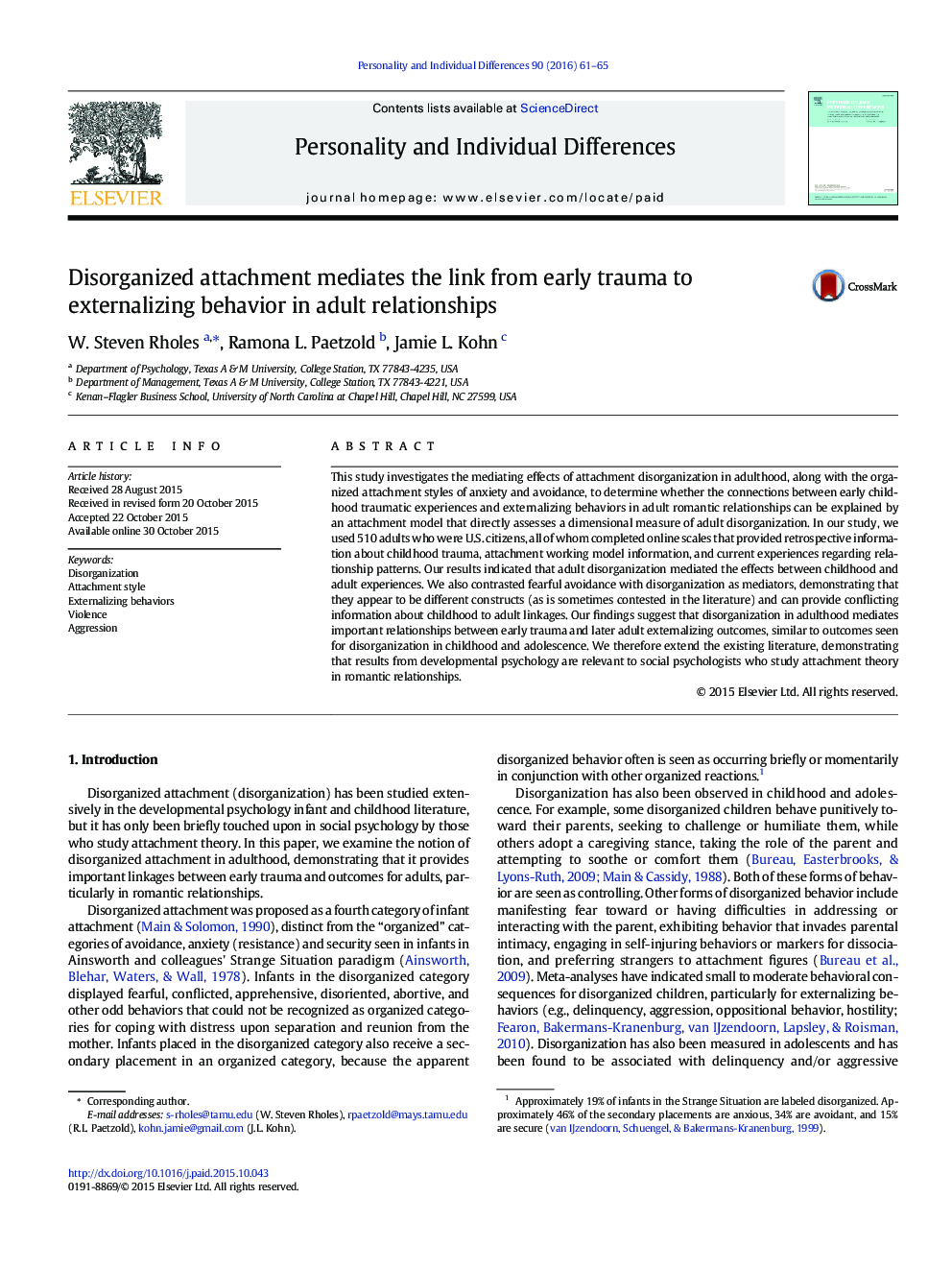| Article ID | Journal | Published Year | Pages | File Type |
|---|---|---|---|---|
| 889828 | Personality and Individual Differences | 2016 | 5 Pages |
•Childhood trauma is shown to result in externalizing adult outcomes toward partners.•The mechanism relies, in part, on adult disorganized attachment.•Controlling for current abuse does not eliminate all effects of disorganization.•Disorganization is different from fearful avoidance in predicting externalization.
This study investigates the mediating effects of attachment disorganization in adulthood, along with the organized attachment styles of anxiety and avoidance, to determine whether the connections between early childhood traumatic experiences and externalizing behaviors in adult romantic relationships can be explained by an attachment model that directly assesses a dimensional measure of adult disorganization. In our study, we used 510 adults who were U.S. citizens, all of whom completed online scales that provided retrospective information about childhood trauma, attachment working model information, and current experiences regarding relationship patterns. Our results indicated that adult disorganization mediated the effects between childhood and adult experiences. We also contrasted fearful avoidance with disorganization as mediators, demonstrating that they appear to be different constructs (as is sometimes contested in the literature) and can provide conflicting information about childhood to adult linkages. Our findings suggest that disorganization in adulthood mediates important relationships between early trauma and later adult externalizing outcomes, similar to outcomes seen for disorganization in childhood and adolescence. We therefore extend the existing literature, demonstrating that results from developmental psychology are relevant to social psychologists who study attachment theory in romantic relationships.
